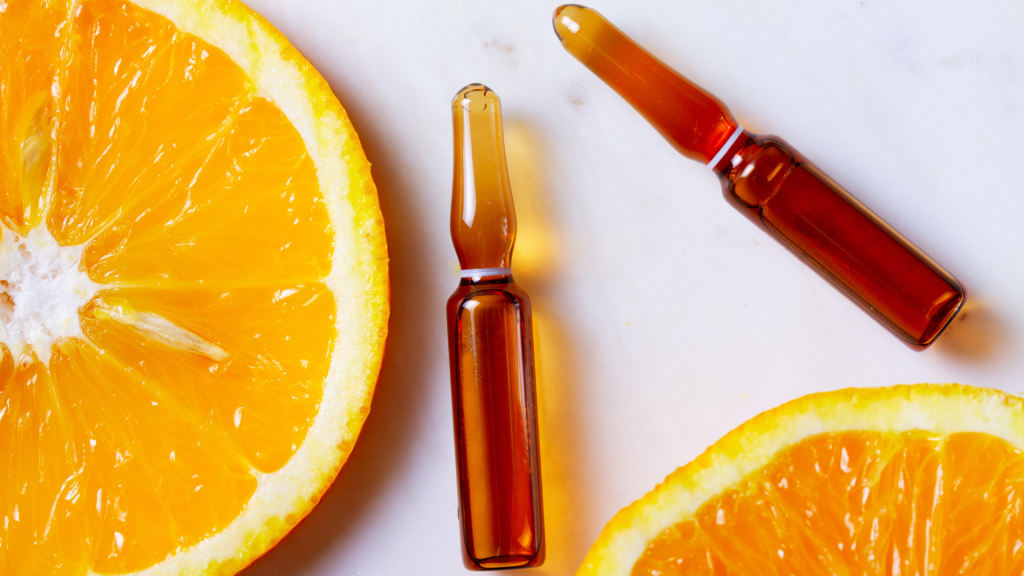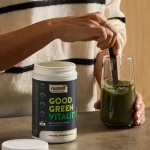

Movember, the month formerly known as November, is when brave and selfless men around the world grow a moustache and women step up to support them all. The purpose is to raise awareness and funds for men’s health – specifically for prostate cancer, testicular cancer, mental health and suicide prevention with the aim to live happier, healthier and longer. Movember has created a movement of over 5 million supporters across the world, funding more than 1,200 innovative men’s health projects across more than 20 different countries.
Mental health stigma is an umbrella term that includes social stigma referring to the negative attitude towards and disproval of a person experiencing mental health illness rooted in misperception that symptoms of mental illness are based on a person having a weak character. Consequently, this can lead to discrimination, avoidance and rejection. Self-stigma is the internalisation of social stigma, in that the person with the mental illness feels ashamed about their symptoms. (Ref 1)
Although both men and women are affected by mental illness, it is often overlooked in males. This causes mental health conditions in men to go untreated because they are far less likely to seek medical attention. Men are dying on average 4.5 years earlier than women, and for largely preventable reasons according to Movember. Alternatively, within the UK, men aged 45-49 have the highest rate of suicide of all ages. One possible cause for this, shown in the Samaritans report, was due to men being more frequently ejected from the family home than women in a family breakdown. It has been shown that they do not have as much of a social support network to fall back on as women. In addition, they are more likely to find themselves alone, paying a lot of child support and may be living in insecure or hostel accommodation. (Ref 2)
Some herbs such as fenugreek seed extracts and ashwagandha extra have shown to have a positive effect on testosterone concentrations in men. Fenugreek seed extracts (positive findings in 4 out of 6 studies) and ashwagandha root/leaf extracts (positive findings in 3 out of 4 studies) demonstrated the most consistent increases in testosterone concentrations. Asian ginseng also has had evidence in increasing testosterone; however, it has also had contradicting evidence so further research is required. (Ref 5)
Potential benefits in including supplements for testosterone include anti-inflammatory and antioxidant properties, decreasing the main counterregulatory hormones of testosterone, such as cortisol, or changing activity of key enzymes associated with testosterone production. For example, ashwagandha’s antioxidant and anti-inflammatory effects, which have been demonstrated in animal and in-vitro, may be associated with increased testosterone concentrations if the underlying cause of low testosterone is inflammation or oxidative stress. In addition, Asian ginseng also has antioxidant properties, which reduce lipid peroxidation and increase glutathione peroxidase concentrations.
Another explanation as to why herbs may increase testosterone concentrations in males is by ameliorating cortisol production. This is the body’s stress hormone and is inversely correlated with testosterone concentrations. For example, in several studies, ashwagandha has been shown to reduce cortisol concentrations, potentially contributing to testosterone-enhancing effects.
Fenugreek seed extracts have also demonstrated a positive effect for testosterone levels. The hormone may have a greater physiological effect in the body when concentrations of these biomarkers are elevated, demonstrating a positive effect on bioavailable testosterone concentrations. However, further research is required on this topic, although robustly-designed studies demonstrate consistent positive effects of some herbs on testosterone production. (Ref 5)
Vitamin C (ascorbic acid) is a water-soluble antioxidant acting as an important cofactor in hydroxylation and amidation reactions. Higher doses of vitamin C intake can result in higher concentrations in seminal plasma and may prohibit DNA damage. Whereas, vitamin E is a fat-soluble antioxidant, capable of neutralising free radicals, therefore protecting cell membranes from free radicals. It has also been shown to inhibit the production of reactive oxygen species (ROS) in infertile men. When both these supplements are taken together, it plays a key role in collagen synthesis, proteoglycans, and intercellular matrix. A study was conducted on infertile men where they received 1 gram of vitamin E and 1 gram of vitamin C. After two months, the extent of DNA damage was significantly reduced in the intervention group.

CoQ10 is another antioxidant supplement and an electron transport chain component. Its function is in aerobic cellular respiration, which generates cellular energy compounds such as ATP. A study was conducted on 60 men with poor fertility who were supplemented with CoQ10. After 6 months, the CoQ10 content increased in conjunction to improved sperm motility. It resulted in six spontaneous pregnancies in the group who were supplemented with CoQ10, whilst only three spontaneous pregnancies occurred in the placebo group. In addition to this, in a trial of 228 infertile men showing abnormal sperm concentration, motility and morphology, results showed that 26 weeks of treatment with CoQ10 improved sperm density, sperm morphology and sperm motility in the intervention group compared to the control group.
Zinc is an abundant metal in the body and the World Health Organisation (WHO) estimates that 17.3% of the world’s population is at risk of insufficient zinc intake. Foods high in zinc include red meat, fish and milk. Supplementation has shown to have a protective effect on the spermatozoa against oxidised thiol levels, therefore may restore impaired semen function. One study was conducted on 60 infertile men who received 220 mg zinc sulphate per day for 3 months and found that oxidised thiol levels and semen returned to normal. Moreover, another study was conducted on 60 fertile and 60 infertile men who received two zinc sulphate capsules daily for a period of 3 months. This resulted in total normal sperm count, sperm volume and percentage of progressive sperm motility increasing after zinc therapy.
Selenium has been shown to be an essential trace element for testosterone biosynthesis and formation of sperm. N-acetylcysteine is a naturally occurring compound, created through a reaction between amino acid L-cysteine and functions as a precursor of glutathione peroxidase. Randomised clinical trials have reported that selenium supplementation alone or with other compounds improves sperm count, motility and morphology, as well as sperm concentration in infertile men. Additionally, the effect of selenium and N-acetyl-cysteine in 468 infertile men was researched. After 30 weeks of supplementation, serum-follicle-stimulating hormone (FSH) decreased while serum testosterone and inhibin B levels increased. (Ref 4)
Hair loss can be defined in several forms including male or female androgenetic alopecia and telogen effluvium. Androgenetic alopecia is caused by hair follicular miniaturisation. Whereas, telogen effluvium is commonly caused by diffuse nonscarring hair loss that is usually correlated with physiological stress.
Nutritional intervention may be beneficial for individuals suffering from hair loss. Oral supplementation of biotin, vitamin B12 and a B-complex multivitamin have been shown to be the most beneficial. In addition to this, supplements containing hydrolysed fish-origin collagen, taurine, cysteine, methionine, iron and selenium have recently been commercialised for patients with hair loss. This was proved in a 12-week randomised controlled trial to test the efficacy and tolerability of the supplements. Group A were provided with the oral supplementation along with a specific drug treatment, whereas group B were only provided with a specific drug treatment group alone. It was confirmed that hair growth was more improved in group A than group B, confirming the additional role of the oral supplementation to improve the hair growth compared to the drug treatments alone. (Ref 6)

Moreover, vitamin C is a powerful antioxidant, playing a vital role in overall health and can indirectly benefit the hair. Since it is an antioxidant, it can help protect cells from damage caused by free radicals. It also has an important role in collagen production which is an essential protein for hair structure and strength. (Ref 7)
Another important supplement is zinc which is an essential trace mineral that plays a vital role in hair health. It is the protein building block fundamental to hair structure and the growth cycle. The efficacy of zinc supplementation and hair loss still requires further research; however, it is recommended to maintain zinc levels in the diet. (Ref 7)
Green tea is popular for its antioxidant properties and its thermogenic effect as it contains antioxidant polyphenols, and exhibits further antioxidant effect by maintaining glutathione levels. Moreover, green tea extracts can increase natural energy expenditure and fat oxidation. The polyphenols also offer liver protective benefits and help maintain the body’s normal inflammatory response to oxidative stressors. A clinical trial was conducted on overweight individuals and showed body weight and BMI changed significantly following green tea administration. The reduction in waist circumference after supplementation was also significant, especially after a treatment duration of <12 weeks. (Ref 8)
Further to this, certain probiotics have been shown to decrease body weight and body fat percentage. A study was conducted containing a combination of probiotic bacteria L. acidophilus, B. lactis, B. longum, B. bifidum and a prebiotic mixture of galactooligosaccharides on the human gut microbiota. Previous studies have shown to that these probiotic species can be associated with decreased body weight and body fat percentage, while prebiotic galactooligosaccharides have been shown to improve markers of metabolic syndrome and modulate the gut microbiota and immune function in overweight adults. In this particular study, Prevotella and Gardnerella genera were significantly decreased after symbiotic supplementation. These genera are associated with chronic inflammatory conditions and positively correlated with obesity. (Ref 9)






Accepting payments via


YourHealthBasket © 2025
detoxpeople Ltd
Registered in England & Wales 07156741
VAT reg GB 103 3641 60
Our new practitioner portal has been released and it’s now easier than ever to link a client’s account and provide them with suggestions using our new protocol system.
Convert your current cart into a protocol which can then be assigned to a linked client.